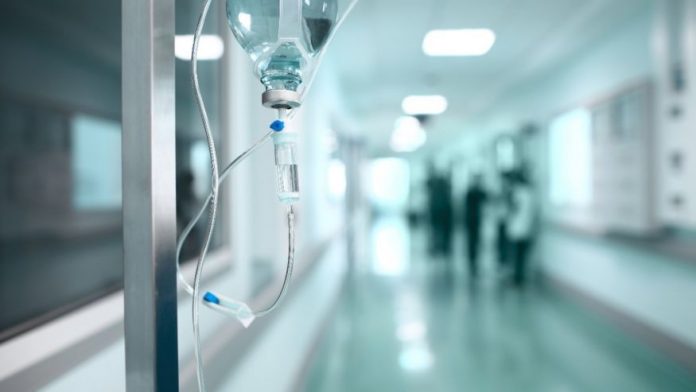
Prince George’s Hospital Center officials say that the potentially deadly bacteria found in the nasal swabs of three of their infant patients was also found in the plumbing of the neonatal intensive care unit and a unit for adult patients.
At a news conference Friday, the president of Dimensions Healthcare System, the parent company of the hospital center, said that the testing of water samples revealed the presence of pseudomonas bacteria in four sinks in the neonatal intensive care. The findings led hospital officials to the conclusion that the infants were exposed to the bacteria from the water system in the NICU, Dimensions President Neil Moore said.
The NICU has been closed since Aug. 9, when nine babies were transferred from the hospital in Cheverly, Maryland, to Children’s National Medical Center in the District of Columbia after they tested positive for the pseudomonas bacteria.
Hospital officials said Friday that the three infants are doing well but that the unit will remain closed while a team of doctors, nurses, epidemiologists and building engineers test pipes to learn how the problem occurred.
“We are doing everything possible to remediate this situation,” Moore said.
Moore, along with Sherry Perkins, executive vice president of Dimensions Healthcare, and Anthony Harris, a professor in the Department of Epidemiology at the University of Maryland School of Medicine, said hospital officials were working to rectify the problem.
Moore noted that two sinks within the adult inpatient care unit have been taken out of use and have been treated.
Perkins talked about the other precautions that have been put in place since the discovery, including bathing newborns with sterile water and redirecting high-risk pregnant mothers to deliver at other hospitals. She said “bacteria-catching filters” have been installed in the NICU and the ICU and that there are plans to put filters through the entire hospital.
“Caring for patients and families is what we do, and patient care has driven this investigation,” Perkins said. “We have taken care of 116 patients in our NICU. These patients are precious to us. It saddens us with their families to ever lose a baby.”
Perkins said that since the beginning of the year, seven infants in the NICU have died. She noted that the infants were premature and had complex medical problems. “Some were as small as one to two pounds,” she said. But Perkins said she could not rule out whether the bacteria may have played a role in their deaths.
“Our epidemiologist continue to investigate any links between the deaths of these babies and the presence of pseudomonas in our water supply, and we don’t have the answers to that yet,” she said.
When found in tap water, the most common strain of pseudomonas is not harmful to most healthy people, experts said. But it is a bigger problem in hospitals, where it can be fatal in patients with weakened or immature immune systems.
Perkins said that infection-control precautions used at the hospital center are the same as those used across the country. “It is not a gap in those practices that led to this,” she said. “What we are trying to understand [is] how there would be this transmission from our water to these babies.”
“The best determination we can make from this, as we have done the investigation and mapped the plumbing, is that it was in the pipes from the water system that leads to the NICU.”
Harris, from the epidemiology department, said that he is confident the hospital’s remediation plan will be successful.
Hospital officials said they would like to reopen the NICU next month but couldn’t say with certainty whether they would be able to.
(c) 2016, The Washington Post · Hamil R. Harris


